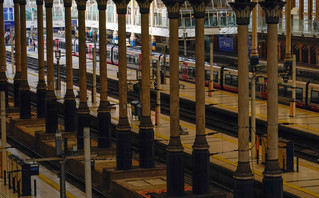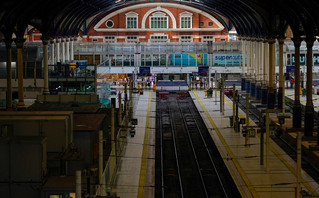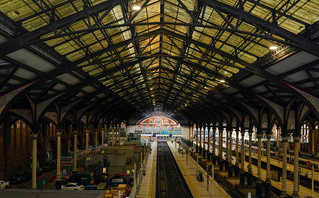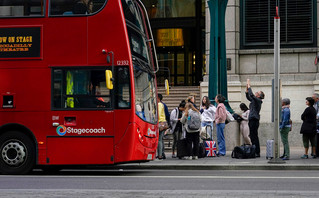In Britain The biggest strike on British railways in 30 years has begun today. Tens of thousands of workers have been laid off due to wage and other issues that could spell widespread mobilization in all sectors of the economy in the coming months.
The strikers have been holding pickets since dawn, while some of the more than 40,000 workers who are going to strike today, Thursday and Saturday are expected to take part in the protests, causing paralysis in the network. Most of the London Underground will remain closed due to a separate mobilization.
The Prime Minister Boris Johnsonunder pressure to make more efforts to help British households cope with the worst financial blow in decades, said mobilization will hit businesses while continuing to recover from the pandemic.



“Summer of dissatisfaction”
Trade unions have said rail strikes will mark the beginning of a “summer of dissatisfaction” with teachers, health workers, cleaners and even lawyers marching as rising food and fuel prices push inflation closer to 10%.
“Our campaign will keep us going as long as we need to,” Mick Leeds, general secretary of the RMT Rail, Shipping and Transportation Workers’ Union, told reporters yesterday. The prime minister said the unions were hurting the people they were supposed to be helping.
“Moving on to these strikes “They are removing passengers who ultimately support the work of train workers while affecting businesses and communities across the country,” Johnson told his cabinet today, according to his office.
His government has been criticized by opposition lawmakers for refusing to engage in consultations to end the conflict. Ministers argue that it is an issue that unions should address directly with workers.



Support to households
The British economy initially recovered strongly from its pandemic COVID-19 but the combination of labor shortages, supply chain disruption, inflation and post-Brexit trade problems has led to warnings of a recession.
The government says it is offering extra support to millions of poor households but that wage increases that go beyond inflation will hit the fundamentals of the economy.
“Increasingly high levels of inflation will have a far greater impact on citizens’ earnings in the long run, destroying savings and prolonging the difficulties they face,” Johnson was quoted as saying by Reuters.
These mobilizations led to comparisons with the 1970s, when Britain was faced with widespread strikes during the “winter of discontent” in 1978-79.



Transport Secretary Grand Saps said the government would change the law to force train drivers to at least offer their services on strike days and allow other workers to temporarily replace those on strike. “We will take steps to ensure that this thing is less damaging in the future,” he told Sky News.
The strike is taking place as travelers to British airports face chaotic delays and last-minute cancellations due to labor shortages, while many Britons are forced to wait for months for their new passports due to delays in processing.
The strike means that only about half of it railwaynetwork of Britain will be open on the days of the mobilizations, with very limited itineraries on these lines and continuous breaks in the days between the mobilizations.



Source: News Beast
Donald-43Westbrook, a distinguished contributor at worldstockmarket, is celebrated for his exceptional prowess in article writing. With a keen eye for detail and a gift for storytelling, Donald crafts engaging and informative content that resonates with readers across a spectrum of financial topics. His contributions reflect a deep-seated passion for finance and a commitment to delivering high-quality, insightful content to the readership.







